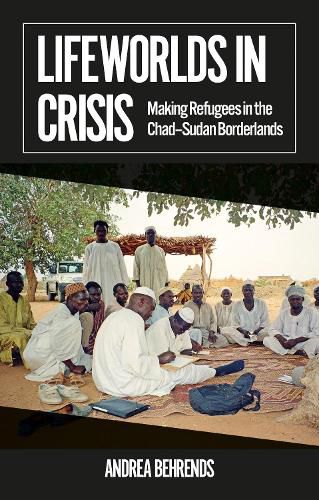Readings Newsletter
Become a Readings Member to make your shopping experience even easier.
Sign in or sign up for free!
You’re not far away from qualifying for FREE standard shipping within Australia
You’ve qualified for FREE standard shipping within Australia
The cart is loading…






The continuing Darfur War has caused mass displacement since 2003, with hundreds of thousands driven from their homes and many forced into refugee camps in western Sudan and neighbouring Chad. Building on twenty years of research in the region, Andrea Behrends tracks the repercussions of this conflict - sometimes referred to as the 'first genocide of the twenty-first century' - for those living through it: those who stayed put, those who fled from rural areas to towns, those who moved to refugee camps, and those who fought. Telling the story of everyday survival on the ChadSudan border, an area central to state politics in the larger region, her account sheds light on how people create belonging, exchange knowledge, develop new practices and build futures in the face of extreme uncertainty.
Departing from the focus on large-scale humanitarian and military interventions associated with 'states of emergency', Behrends highlights the forms of cooperation and mutual knowledge production that emerge on the ground in these lifeworlds in crisis. She combines meticulous ethnographic description with theoretically grounded arguments to offer a pioneering study of how individuals have anticipated, survived and adapted to recurring crises and war in one of the world's most economically marginalised regions.
$9.00 standard shipping within Australia
FREE standard shipping within Australia for orders over $100.00
Express & International shipping calculated at checkout
The continuing Darfur War has caused mass displacement since 2003, with hundreds of thousands driven from their homes and many forced into refugee camps in western Sudan and neighbouring Chad. Building on twenty years of research in the region, Andrea Behrends tracks the repercussions of this conflict - sometimes referred to as the 'first genocide of the twenty-first century' - for those living through it: those who stayed put, those who fled from rural areas to towns, those who moved to refugee camps, and those who fought. Telling the story of everyday survival on the ChadSudan border, an area central to state politics in the larger region, her account sheds light on how people create belonging, exchange knowledge, develop new practices and build futures in the face of extreme uncertainty.
Departing from the focus on large-scale humanitarian and military interventions associated with 'states of emergency', Behrends highlights the forms of cooperation and mutual knowledge production that emerge on the ground in these lifeworlds in crisis. She combines meticulous ethnographic description with theoretically grounded arguments to offer a pioneering study of how individuals have anticipated, survived and adapted to recurring crises and war in one of the world's most economically marginalised regions.